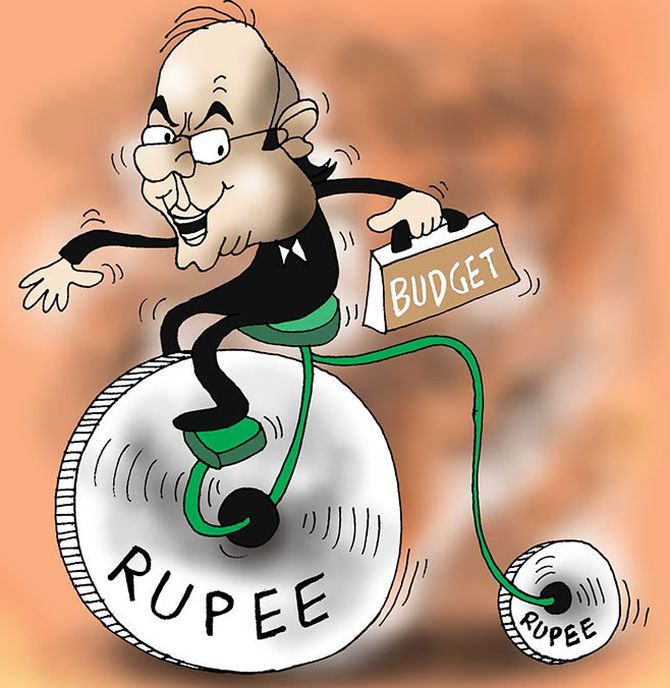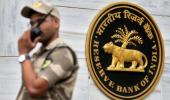There was no law that prevented the government from presenting a sixth full Budget, or something similar to it.
Illustration: Uttam Ghosh/Rediff.com

The 2019-20 interim Budget before the Lok Sabha elections could have a more expanded section for tax proposals than any other interim Budgets in the past.
Sources familiar with the developments said discussions had already been held at the highest levels of the government to include a number of direct tax announcements in Finance Minister Arun Jaitley’s speech.
However, no final decision has been taken yet, as the contents of Jaitley’s speech will only be finalised by mid-January.
The interim Budget is expected to be presented on February 1, 2019.
The deliberations have so far focused on convention and legislation related to interim Budgets.
According to convention, the Budget speeches immediately preceding a Lok Sabha election do not have a distinct Part B, and only a very limited number of tax-related announcements are made.
Officials, however, said there was no law that prevented the government from presenting a sixth full Budget, or something similar to it.
“There are short Finance Bills which accompany the interim Budgets, just to extend the prevailing tax rates to April-July.
"So, all that needs to be done is to add new tax proposals in the Finance Bill.
"The problem is that once the Finance Bill is tabled, you can expect political opposition.
"That is something for the leadership to deal with,” said another official aware of the deliberations.
From 2017 onwards, the Union Budget is being presented in Parliament on February 1 instead of February 28.
This allows the government to get the Finance Bill passed before the new financial year begins on April 1.
There is another advantage which policymakers have spoken of - that a February 1 Budget, and most of the Budget session, might steer clear of the code of conduct to be imposed by the Election Commission before the next general elections.
In any case, finance ministers have announced tax proposals in interim Budgets in the past as well.
In the 2014-15 interim budget, the then Finance Minister P Chidambaram announced a string of excise duty and customs measures in order to boost growth.
Excise duties for a number of items were cut while custom rates were rationalised.
“In keeping with the convention, I do not propose to make any announcements regarding changes to the tax laws.
"However, the current economic situation demands some interventions that cannot wait for the regular Budget.
"In particular, the manufacturing sector needs an immediate boost,” Chidambaram had said.
In the 2004-05 interim Budget as well, Jaswant Singh did not tweak any direct or indirect tax rates, but announced a number of proposals related to long-term capital gains tax, tax deducted at source, double taxation, etc.
However, sources say it is easier to carry out changes in excise and customs duties rates as these do not need amendment in laws.
Among indirect taxes, only service tax needed those changes.
Now, most of excise duty and service taxes have been subsumed in the goods and services tax. Direct tax rates require changes in laws through the Finance Bill which need to be approved by Parliament to implement those changes.
The process for preparing the 2019-20 interim Budget began in mid-October.
So far, Budget-makers in the finance ministry have held meetings with representatives from other central government departments to decide on revised expenditure estimates for the year and the budgeted expenditure estimates for the coming year.
The discussions on revenue projections, tax announcements, meetings with industry representatives, and finalising the budget speech, will all be done by late-January.











